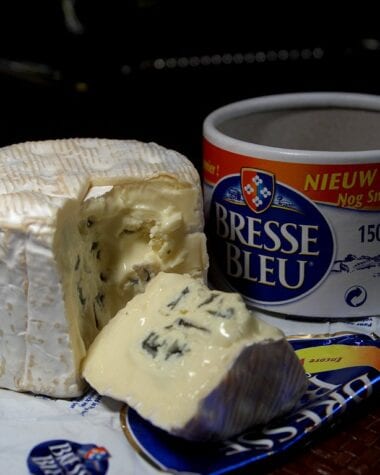Although processed foods have significantly become more health-conscious over the past few years, still, nothing beats fresh foods. That said, fresh foods such as fruits, vegetables, and meat can often prove very expensive compared to their viable alternatives: namely frozen and canned food.
With that in mind, it isn’t that bad of an idea to swap some fresh produce for frozen or canned food from time to time.
This then brought up the debate: which is better – frozen or canned food? This article aims to dive deeper into that very question and highlight each of their strengths and weaknesses. After reading, we hope to conclusively answer which of the two is a better alternative to fresh foods.
Frozen Food and Canned Food
No matter how nutritious or health-beneficial frozen and canned food manufacturers try to produce their products, most people will still automatically brand them as harmful or downright unhealthy just because they are technically processed foods.
While the argument does hold some truth, it isn’t fair to assume all frozen and canned food is bad for you. In fact, we are now in an age where such foods already have a dedicated diet plan and are considered healthy foods to some degree (here is a straightforward diet plan revolving around frozen foods).
Although fresh foods would always be on top of frozen and canned food, surprisingly, there are a few circumstances where such foods could offer you more health benefits than fresh ones. What sounded impossible before has now become a reality.
It is worth noting that frozen produce is picked and frozen at peak season, so you can be confident that they are always fresh and in season. But, of course, it is still in your best interest to always check the labels of every frozen product you pick up on groceries to ensure that there aren’t any excess additives, such as sugar and salt.
Canned foods, on the other hand, are more budget-friendly and have a much longer shelf time. This helps cut down on food waste and ultimately saves more money than any other food product. Although filled with flavors, fresh foods sometimes still beat canned foods out in terms of taste and quality.
Summary Table
Below is a straightforward table showing the strengths and weaknesses of both frozen foods and canned foods.
| Type | Strengths | Weaknesses |
|---|---|---|
| Frozen Foods | It is becoming more and more popular Most products now have high nutritional value It has a wide variety of food products; you can virtually find a frozen option for every food you may like It saves considerable amount of money and time Does not go bad as long as kept frozen | Some have allergenic components Some have hazardous or too much preservatives added onto them Some may taste not as good/bland; the longer the food is kept in the freezer, the lower its quality gets |
| Canned Foods | The ultimate budget food It is sustainable and very easy to store and consume Excellent source of fiber Takes years to go bad; making for an excellent food for survivalists | Increased use of preservatives It tends to contain large amounts of salt Some may suffer from loss of nutritional value when canning |
With that out of the way, here is a comprehensive look at each of the strengths and weaknesses of frozen and canned foods as shown above.
Frozen Foods – Strengths
It is becoming more and more popular
The demand for products that may be quickly and conveniently prepared, which frozen meals are the king of, is rising at a rapid rate due to the fact that more and more people are now leading hectic lifestyles.
We are now in an age where everyone is always on the go and doing something. People are now more likely to spend considerable amounts of money on convenience goods while adding nutritional value to their daily diet.
While we still enjoy carefully crafted foods in the kitchen, it has become more acceptable to opt for meals that take less time to prepare. The boost in availability, affordability, accessibility, and convenience of frozen-ready meals make them an excellent choice for quickly satisfying customers’ daily nutritional needs.
This market has tremendous growth opportunities and will surely evolve further with time. According to statisticians, the frozen foods industry is expected to expand at a compound annual growth rate (CAGR) of 5.2% from 2022 to 2030.
It has high nutritional value
To those that may not be well-versed with the benefits of the food preservation method of ‘freezing,’ this method locks the nutritional value of the food while also suspending bacteria indefinitely.
As long as the food is kept and frozen right away, loss of nutrition and spreading bacteria shouldn’t be a worry. These benefits are further enhanced by the rapidly evolving quick-freezing techniques of modern times.
In terms of calories, frozen foods typically have the same nutritional value as fresh foods. Say that the manufacturer did not add extra potassium as a preservative; frozen foods can indeed be an ideal choice for quick food solutions.
And as we have already established above, some frozen foods have already evolved to the point that their nutritional values can stand par-to-par with fresh foods – in fact, some of them may have already exceeded such.
It has a wide variety of food products
Meat-heavy, vegan, gluten-free, weight-loss, dietitian-approved, and so much more – frozen foods have such a wide array of food product offerings that you can most probably always find what it is that you are looking for.
This is due to the rising demand for frozen food, the frozen food industry, which, at its inception, only offered basic frozen products, such as veggies, fruits, and fries.
Gone are the days when frozen foods were seen only as novelty products that specifically aimed to satisfy your 5 pm cravings. Nowadays, some frozen foods are considered equivalent to fresh foods to some degree.
It saves considerable amounts of money and time
With almost every store or supermarket today housing a considerable portion of their space solely for frozen food items, you can now be confident that you can buy and consume frozen food on the go whenever or wherever you please. Frozen foods are ideal for people looking for an excellent quick meal because of their incredible convenience.
In addition to that, and perhaps the main factor many are attracted to frozen foods, they also assist consumers in portion control and resisting their urges to overeat at a restaurant or at their favorite fast food joint. This, in turn, helps them save considerable amounts of money and time. ‘
Notably, frozen meals can also aid in reducing food waste. Food wastage at both home and the workplace can be drastically reduced by only preparing what is required for the meal at hand and refreezing the rest for future use. Again, since frozen foods are innately pre-portioned, you wouldn’t have to worry about such things.
Frozen Foods – Weaknesses
Some have allergenic components
It is recommended that you always keep an eye on some particular ingredients when handling frozen foods, especially if you have allergies to some of them. Unlike fresh foods, where you have a say in which ingredients you would use in cooking, frozen foods are typically pre-cooked and pre-prepared – what you see is what you get with them.
Develop a habit of running your eyes through the ingredients list of each frozen food product you pick up in the store near you before making a purchase. You wouldn’t want a scenario where you purchased packages of a seemingly delicious frozen food product only to realize that it has an ingredient to which you are allergic.
Some have hazardous/too many preservatives
The frozen food industry is now trying its hardest to distance itself from the bad reputation it had way back then as nothing but ‘glorified junk food.’ While most frozen foods have already succeeded in doing so, some sadly do not. Some still have overwhelming amounts of hazardous preservatives added to them.
While its main purpose is to lengthen the shelf life of the particular consumable, these preservatives can accumulate through constant consumption, affecting our health in the long run for the worse. They can not only cause serious health problems to some people, but they can also attract fetal diseases.
With all that being said, we recommend only going for products that claim they do not add preservatives or, at the very least, incorporate only a little amount of them.
Some may taste bland compared to freshly cooked food
The longer a particular food is frozen, the blander its taste gets. That is just the nature of the freezing food preservation method. So expect the flavor of freshly cooked food to not always be the same as its frozen alternative – in fact, it’s best that you expect it to taste bland.
It is universally believed that this happens because major food producers tend to diminish the taste of processed frozen foods by preparing them in large batches. The more products they pump out on store shelves, the more their potential profit – sadly, this is in exchange for the product’s taste and, sometimes, quality.
Nevertheless, there are now some frozen products that successfully retain the great taste, if not better, that is usually reserved for fresh food.
Canned Foods – Strengths
It is the ultimate budget food
Ask advice from someone to save significant money on food, and chances are they’d tell you to buy more canned products instead. Canned products ought to be your first choice if you’re seeking less expensive consumable options. We can even go as far as stating that it is the ultimate budget food.
With today’s rising inflation rates, the costs of fresh produce, and even frozen foods, might at times prove inexplicable. While it is only natural for canned products to increase in price as well today, they are virtually always less expensive than the two food types we mentioned.
It is sustainable and easy to store and consume
Did you know that canned foods, after processing, can often last between one and five years in the pantry? That is just absurdly longer compared to the typical 3-7 days of fresh foods. This prolonged shelf life significantly helps reduce food waste, which is crucial for maintaining a sustainable world.
Furthermore, canned foods are incredibly easy to store and consume. Unlike fresh foods, which you need to refrigerate, and frozen foods, which you need to keep frozen, canned foods can safely reside in your cellar or kitchen shelves for a long period of time without the risk of it going bad. It has the benefit of being very practical for storage needs.
As for consumption, most canned foods can be eaten directly from the can itself! Pop it open using an opener and indulge right then and there. However, note that some may require heating after taking out the can.
It boosts the intake of fiber
Numerous studies have shown a strong correlation between increased fiber intake and notable weight loss – solidifying fiber as a crucial factor in developing a healthy digestive system. Since the canning process increases the amount of soluble and healthier fiber in some foods, such as beans, you can get the increased fiber you may desire by opting for canned products from time to time.
Moreover, the process also includes the incorporation of certain additive flavors, making some canned foods tastier and more flavorful as compared to fresh and frozen foods. It is also worth noting that the number of fat-soluble vitamins, minerals, fat carbohydrates, and protein is unaffected in the canning process, so you can be confident that these health benefits are still there.
Canned Foods – Weaknesses
Increased use of preservatives to enhance color and taste
Additives and preservatives are a natural part of canned goods – one cannot go without the other, as it would seem. While not in all canned foods, a lot of preservatives are usually incorporated into food in cans to make it even more durable and flavorful. And as we have established above already, these preservatives can be harmful with constant consumption, so there is that.
It tends to contain large amounts of salt
The canning process frequently involves dissolved salt, sometimes even outrageous amounts. With this, you can almost always expect canned food to contain high salt levels. Notably, increased salt intake invites high blood pressure, which may then increase the risk of heart attacks and stroke, among many other possible health complications.
Again, this all boils down to moderation. Not just because you indulge in canned goods from time to time does it mean that you are exposing yourself to these health concerns.
Some may suffer from loss of nutritional value after canning
Compared to fresh produce, canned foods have some nutritional value loss. Like frozen foods, the longer canned foods are stored, the more significant their loss of nutrition is. When canned, some veggies and fruits lose considerable amounts of their nutrition.
Sad to say, for canned foods, if you want healthier options aside from fresh foods, you’d be better off opting for frozen instead. It is also worth noting that canned foods usually have high sugar and trans fat content as well, which, with regular consumption, raises one’s cholesterol levels and may lead to obesity and diabetes.
Conclusion
While both frozen foods and canned items have their own compelling set of strengths and weaknesses, frozen foods just sound better to us for a myriad of reasons. For one, frozen foods are much healthier, diet-friendly, and have less or no added preservatives compared to canned foods.
In addition, since they are flash-frozen immediately, it ensures that the nutrition is locked and will retain them much better. As long as they are kept frozen and are kept in optimal storage, frozen foods may just as well be fresh foods – in terms of quality and nutritional value.
And with all that being said, we end this debate by conclusively stating that frozen foods are better than canned foods.
Want more articles like this? To know more about frozen foods’ pros and cons, refer to our article titled: Frozen Foods: Major Pros and Cons by clicking the link here.









